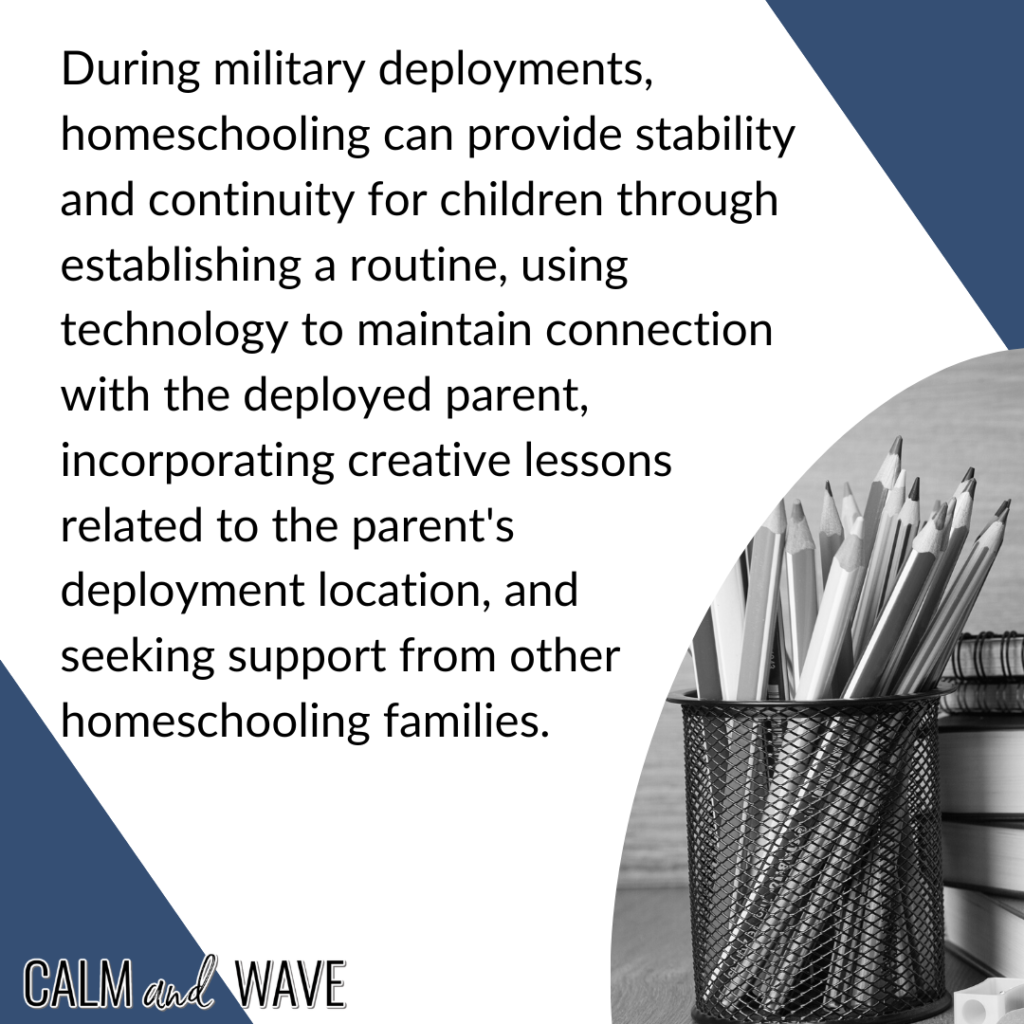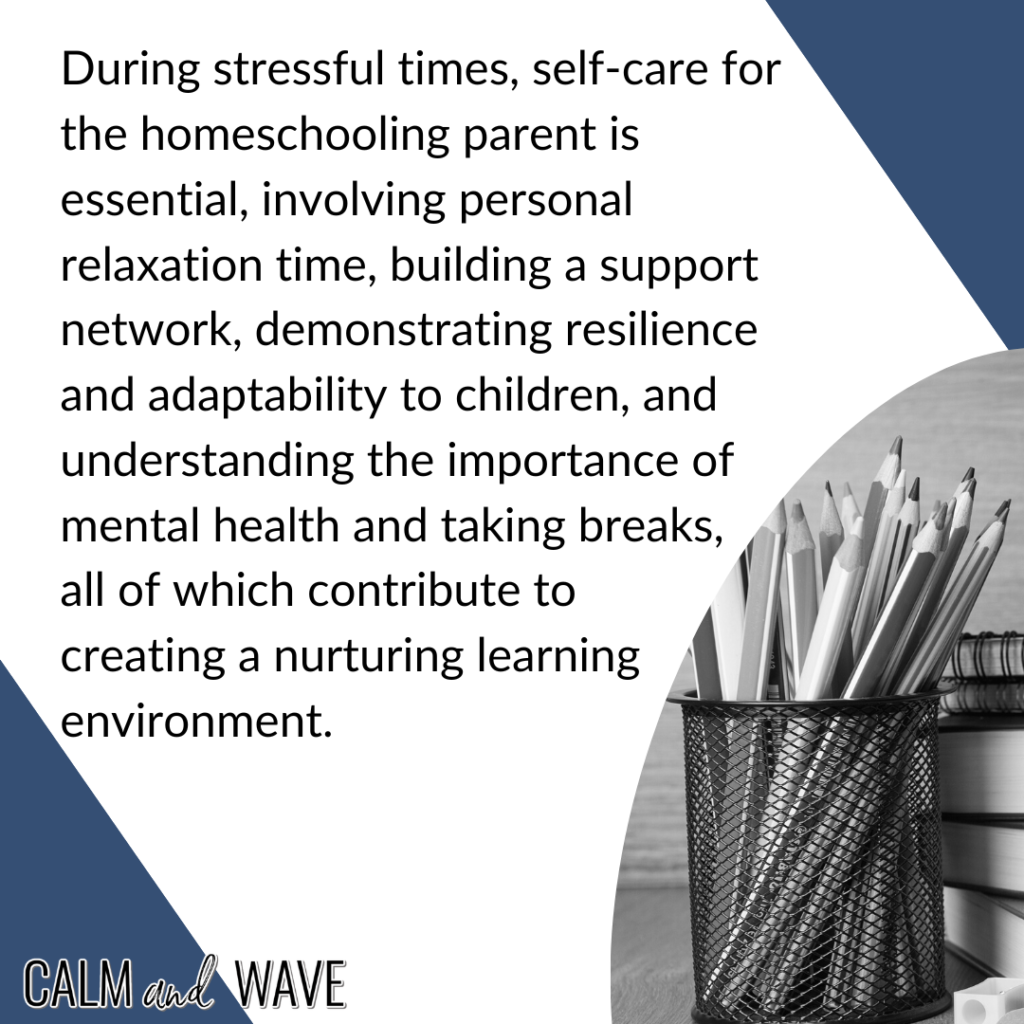
Life can sometimes throw us curveballs that we never saw coming. Whether it's an unexpected illness, the loss of a loved one, or a deployment, these situations can be incredibly challenging to navigate, especially when you're homeschooling your children. However, with resilience, adaptability, and resourcefulness, homeschooling during tough times can become an opportunity for growth and learning for both parents and children. Here are some tips and strategies for homeschooling during tough times.

Dealing with Sickness
When a family member falls ill, it can indeed disrupt the usual homeschooling routine, but it doesn't have to mean that learning becomes an impossible task. Instead, it's an opportunity to show resilience and adaptability in the face of adversity by shifting your curriculum focus.
For instance, you can introduce health-related topics into your teaching. Studying the human body's intricacies, looking at how diseases affect us, or exploring the science behind medical treatments can be both educational and relevant to the situation at hand. Such topics provide academic knowledge and help children understand the situation better, fostering empathy and awareness.
Moreover, in today's digital age, numerous online resources and e-learning platforms can serve as valuable tools during such times. Websites like Prodigy Math and Khan Academy offer interactive lessons on various subjects, including science and health.
Similarly, Time4Learning offers a comprehensive online curriculum for pre-K to 12th grade, ensuring continuity in your child's education even if you cannot conduct lessons personally. Other platforms like SplashLearn cater specifically to younger kids, with engaging content tailored for pre-K to 5th grade.
Free resources are also available for homeschoolers, such as Easy Peasy Homeschool, which provides easy-to-use free online homeschooling curricula, printables, and guides to help families in every step of their homeschooling journey.
Family illness can pose a challenge to your homeschooling routine. However, with the right strategies and resources, it can also become an opportunity for learning and growth. Remember, the key lies in flexibility, adaptability, and maximizing available resources.

Navigating Through Grief
Losing a loved one is an emotionally intense experience marked by feelings of sorrow, confusion, and even anger. It's a time when the world seems to stand still, and everything else feels secondary. Taking time to process the loss is both acceptable and suggested. However, continuing with education during this period can provide a semblance of structure and normalcy in a situation that feels anything but normal.
Literature can be a powerful tool in navigating this sea of emotions. Reading books about grief and loss can help children understand their feelings and realize that what they're experiencing is a natural part of life. In addition to literature, arts can offer a therapeutic outlet for children dealing with loss. Art therapy has been extensively studied and used to help children express their emotions. A study from Lesley University highlights the potential of art therapy in helping grieving adolescents process traumatic grief.
Writing, too, can serve as a valuable tool for expression. Journaling about their feelings or writing letters to the loved one they've lost can provide a safe space for children to express their grief and memories.
While these activities can provide a sense of comfort and control in a challenging time, it's also essential to remember that it's okay to slow down the pace of learning during such periods. Grief is a process, and everyone moves through it at their own speed. It is crucial to maintain open communication about your child's feelings and give them the emotional support they need during this time.
Navigating the path of loss is never easy. However, by integrating therapeutic outlets like literature and arts into your homeschooling routine, you can provide your child with the tools they need to express their emotions and cope with their grief.

Managing Deployments
Military families indeed face unique challenges, one of which is dealing with deployments. Homeschooling during tough times, such as the absence of a parent can be a significant change for a child. However, homeschooling can be a stable anchor in these turbulent times, providing continuity and structure.
Establishing a routine is fundamental during deployments. This routine will provide a sense of familiarity and stability amidst the change. It could be as simple as starting your day with a morning walk, followed by reading time, and then delving into different subjects throughout the day. The key is to create a routine that suits your family's needs and preferences and adhere to it as much as possible. The predictability and consistency offered by a well-planned routine can help ease the uncertainty that often accompanies a parent's deployment.
Technology plays a crucial role in bridging the gap caused by distance during deployments. Video calls, for instance, allow the deployed parent to stay involved in their child's learning process. They can join in for storytime, help with homework, or simply chat about what the child learned that day.
Moreover, homeschooling provides an opportunity to bring creativity into your curriculum. You can incorporate lessons about geography, culture, and history related to the deployed parent's location. If the parent is stationed in Japan, for example, children could learn about Japanese history, culture, language, and geography. They could even try their hand at traditional Japanese art forms like origami, or cook a Japanese meal as part of their home economics lesson.
Lastly, remember that it's okay to seek support. Connect with other military homeschooling families through local communities or online forums. Sharing experiences and resources can make the journey easier.
While deployments pose challenges for military families, they also present unique learning opportunities. Through a consistent routine, use of technology, and a creative curriculum, homeschooling can provide stability and continuity during these periods of change.

Coping Mechanisms and Support
Homeschooling during tough times, such as illness, loss, or a family member's deployment, self-care for the homeschooling parent becomes an absolute necessity. Just as an airplane safety briefing advises you to secure your oxygen mask before assisting others, it's vital to ensure your well-being so that you can effectively support your children.
Taking time out for yourself to relax and recharge is paramount. This could mean setting aside time each day for activities you enjoy, whether it's reading a book, practicing yoga, going for a walk, or simply enjoying a cup of coffee in silence.
Furthermore, never underestimate the power of a support network. Reach out to local homeschooling communities or online forums. These platforms can provide advice, resources, and a sense of camaraderie. Remember, you're not alone in this journey; many have navigated these waters before you.
Homeschooling is not just about academics; it's about nurturing adaptable, resilient individuals who can face challenges head-on. You're teaching your children invaluable life lessons by demonstrating resilience and adaptability during tough times. You're showing them that it's okay to struggle, it's okay to ask for help, and it's okay to take things one day at a time.
It's also important to remember that taking breaks is okay when needed. If you or your child are having a tough day, stepping away from the books and taking some time to rest or engage in a soothing activity is perfectly fine. Taking care of your mental health is just as important as academic learning.
Navigating through challenging times while homeschooling can be daunting, but with self-care, a supportive community, and a flexible approach, you can create a nurturing learning environment for your children. Always remember that it's okay to ask for help, take breaks when needed, and proceed at a pace that works best for your family.
In conclusion, while homeschooling during tough times can be challenging, it's also an opportunity to teach our children about resilience, adaptability, and the importance of continuing to learn, no matter what life throws our way. With patience, flexibility, and a little creativity, we can navigate these challenging periods and come out stronger on the other side.







